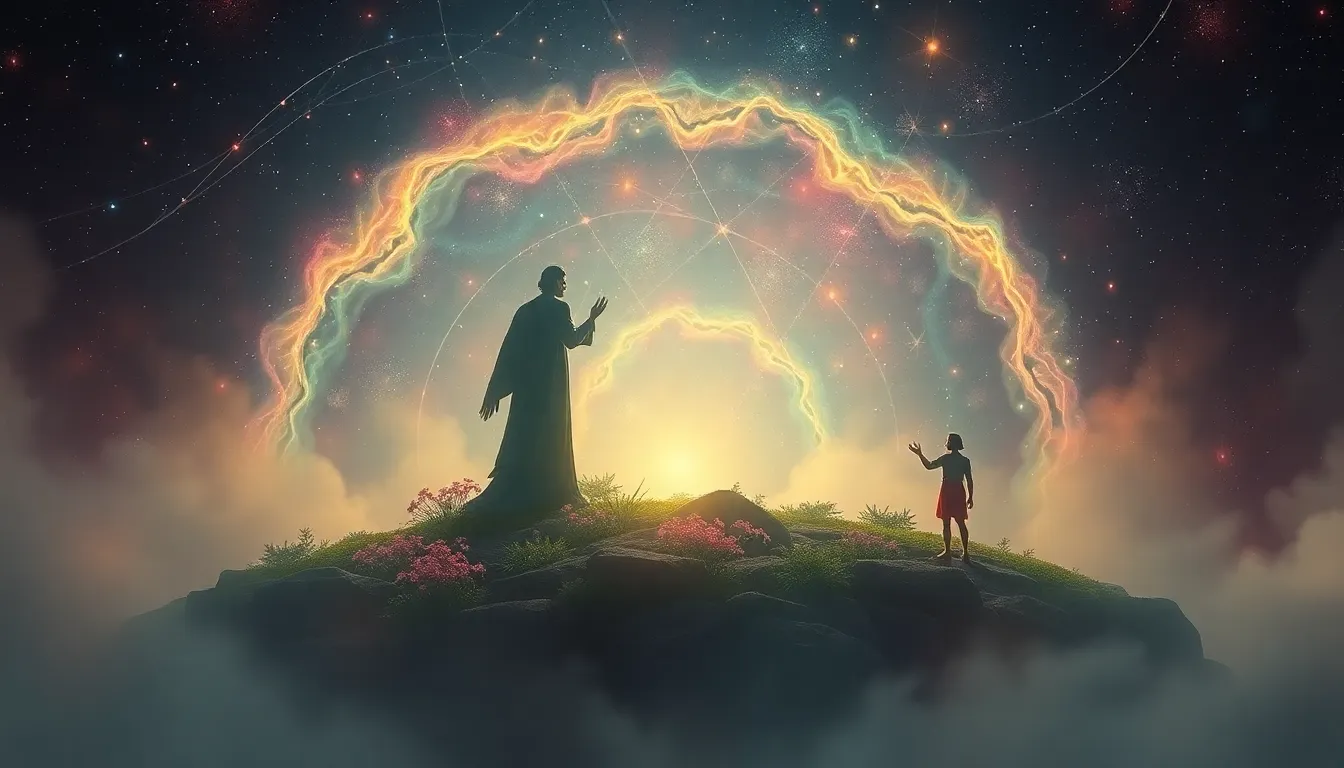Navigating the Myths: The Symbolic Meaning of Flood Stories
1. Introduction: Understanding Flood Myths
Flood myths are a fascinating aspect of human culture, appearing in various forms across different civilizations. From ancient Sumer to modern-day interpretations, these narratives share a common theme: the devastating power of water. Studying these myths allows us to explore the cultural significance they hold and the universal themes they convey about humanity, nature, and the divine.
2. The Universality of Flood Myths
Flood stories can be found in almost every culture around the world, highlighting their universal appeal. Some notable examples include:
- Noah’s Ark from the Judeo-Christian tradition, where God floods the Earth to cleanse it of sin.
- The Epic of Gilgamesh, featuring Utnapishtim, who survives a great flood sent by the gods.
- Hindu texts such as the Shatapatha Brahmana, which recount a flood narrative involving the god Vishnu.
Common themes in these stories often include divine retribution, survival, and the renewal of life. The flood serves as both a destructive force and a means of purifying the world, suggesting that from chaos can come new beginnings.
3. Symbolism of Floods in Mythology
The flood is a powerful symbol in mythology, representing both purification and rebirth. It embodies the dual nature of water:
- Destruction: Floods can wipe out entire civilizations, reflecting the wrath of deities or the inevitability of natural disasters.
- Renewal: Water also cleanses and rejuvenates the Earth, making way for new life and growth.
This duality highlights the complexity of nature and its relationship with humanity. Flood myths remind us that while nature can be destructive, it is also a source of life and regeneration.
4. The Role of Deities and Cosmic Forces in Flood Stories
In many flood myths, gods or supernatural forces play a pivotal role. These narratives often illustrate the relationship between humanity and the divine:
- In the story of Noah, God’s decision to flood the Earth is a response to human wickedness, showcasing the divine judgment.
- In the Epic of Gilgamesh, the gods’ deliberations highlight the complexities of divine motivations and human fate.
- Hindu texts portray Vishnu as a protector who saves humanity from destruction, emphasizing a more benevolent divine intervention.
These narratives often reflect societal values and beliefs about morality, justice, and the human condition in relation to divine forces.
5. Humanity’s Response to Catastrophe: Lessons from Flood Myths
Flood myths are not merely tales of destruction; they often carry moral and ethical teachings. Different cultures interpret human actions leading to floods in various ways:
- In Judeo-Christian narratives, the flood serves as a consequence of human sin, serving as a cautionary tale about morality.
- In the Epic of Gilgamesh, the flood is a test of humanity’s resilience and adaptability in the face of overwhelming odds.
- In Hindu mythology, the flood can represent the cyclical nature of life and the importance of dharma (righteousness).
These stories encourage reflection on human behavior, ethics, and our relationship with the environment.
6. Psychological Interpretations of Flood Myths
From a psychological perspective, flood myths can symbolize internal turmoil and chaos. They often represent collective fears and trauma, serving as metaphors for personal and societal struggles:
- The flood can symbolize overwhelming emotions such as grief, anger, or loss.
- Psychological theories suggest that these myths reflect collective memory, acting as vessels for shared cultural trauma.
By analyzing these narratives, we gain insight into the human psyche and our responses to catastrophe.
7. Flood Myths in Modern Literature and Media
Contemporary authors and filmmakers continue to reinterpret flood narratives, often reimagining them for modern audiences. Examples include:
- The novel The Road by Cormac McCarthy, which portrays a post-apocalyptic world reminiscent of flood myths.
- Films like Waterworld explore themes of survival and environmental catastrophe inspired by traditional flood stories.
These adaptations often reflect current societal anxieties, such as climate change and environmental degradation, drawing parallels between ancient myths and modern realities.
8. Environmental Reflections: Flood Myths and Climate Change
Flood stories gain new relevance in the context of climate change, as rising sea levels and extreme weather events become more common. Folklore can inform our understanding of natural disasters today:
- Myths remind us of humanity’s vulnerability to nature and the consequences of environmental neglect.
- They can inspire action and awareness regarding climate resilience and sustainability.
In this way, flood myths serve as both warnings and guides in navigating our relationship with the environment.
9. Comparative Analysis: Flood Myths vs. Other Catastrophic Myths
While flood myths are prevalent, they can be compared to other catastrophic narratives, such as those involving fire or famine. Key comparisons include:
- Floods often symbolize rebirth and renewal, whereas fire represents destruction and purification.
- Famine stories frequently address scarcity and human struggle, highlighting resilience in different ways.
Flood myths are unique in their depiction of water as both a life-giving and destructive force, emphasizing the duality of nature’s power.
10. Conclusion: The Enduring Legacy of Flood Myths
Flood myths carry an enduring legacy that transcends time and culture. They offer profound insights into human nature, morality, and our relationship with the environment. By studying these narratives, we can better understand the complexities of human experience and the resilience of cultures in the face of catastrophe.
As we navigate contemporary challenges, the lessons embedded in flood myths remind us of the importance of sustainability, morality, and the interconnectedness of life on Earth.




